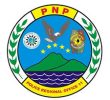Pimentel also called on Arroyo to make public the official report of the Melo Commission, which Arroyo formed last year.
He said the government�s refusal to make the report public �betrays the commission�s lack of independence.�
�The deplorable actuations of Malacanang tend to confirm suspicion that all these investigations of the extra-judicial killings is a sham,� Pimentel siad. �For contrary to their claim that they want the truth about these summary executions to come out, it has become apparent that they are trying to cover up the involvement of the real perpetrators of these killings.�
Early this month, the commission disclosed that it had determined that most of the killings were perpetrated by members of the military. Since the Melo Commission�s initial assessments were made public, Arroyo has invited the United Nations and European countries to send teams to the Philippines to help investigate the murders.
This week, Philip Alston, the UN�s special rapporteur on extrajudicial, summary or arbitrary executions, began his 10-day trip to the Philippines to hear the stories of human-rights victims.
In a statement, the Bagong Alyansang Makabayan said in Manila that Alston had assured the victims� relatives that he was not like the Melo Commission.
�The rapporteur acknowledged that he has limited resources and probably less funding than the Melo Commission, but also said that he is not subject to the political limitations of the Arroyo-appointed Melo Commission,� Bayan secretary-general Renato Reyes Jr. said. �This is perhaps the greatest strength of the rapporteur, he is not beholden to any politician or appointing body.�
Reyes said his group was satisfied with the preliminary meeting between Alston and the victims� relatives and human rights groups. �The organizations were able to impress upon the rapporteur the importance and urgency of the independent probe that he will conduct. The groups are seeking long-term solutions to the killings. We believe that the over-all framework of the investigation should take into account state-responsibility, not just the individual responsibility of some generals,� Reyes said.
�The rapporteur also said that he would take into account the broader context wherein the killings happen. We think this is important in order to expose the trends, patterns and policies that are related to the killings. It is important to understand the social, economic and political contexts of the killings,� Reyes added.
Unlike the hearings of the Melo Commission that were largely ignored by human-rights groups and families of victims, many of them turned up at the meetings with Alston � an indication, Pimentel said, of the public�s lack of faith not only in the commission but in Arroyo who created it.
Meanwhile, life goes on for Tatay Mancio.
�I would like to tell the military and all its forces that even if they finish me off, that will do no good,� he said last month. �We will continue organizing and educating peasants about the real ills of Philippine society,� he added. �And even if they killed me, there will be others who will continue to uphold and fight for the legitimate demands of the people.� (Grace Uddin/davaotoday.com)










